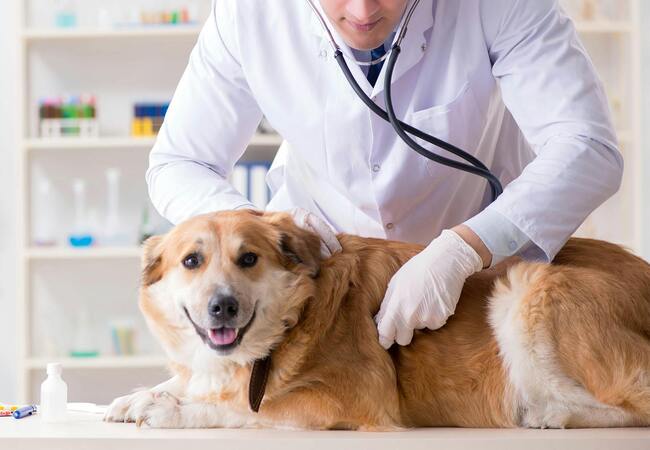Vet’s 2025 Guide to Canine Sperm Abnormalities – Causes, Diagnosis & Care 🐾✨🩺

In this article
Vet’s 2025 Guide to Canine Sperm Abnormalities – Causes, Diagnosis & Care 🐾✨🩺
By Dr. Duncan Houston BVSc
💡 What Are Sperm Abnormalities?
Canine sperm abnormalities encompass issues with sperm count (oligozoospermia/azoospermia), motility (asthenozoospermia), and morphology (teratozoospermia). These defects can cause subfertility or infertility in breeding dogs.
🚩 Causes & Risk Factors
- 🦠 Infections – bacterial prostatitis or epididymitis (e.g., Brucella, Mycoplasma) impair sperm quality.
- 🌡️ Fever/toxins/heat stress may affect testicular function causing poor motility or morphology.
- 🔧 Testicular disorders – degeneration, cryptorchidism, trauma, tumors affecting sperm production.
- 🧬 Genetics or congenital – inherited defects or persistent primary abnormalities.
- 💊 Medications/endocrine issues – like corticosteroids, ketoconazole, hypothyroidism.
- 🕵️ Frequent collection can temporarily reduce quality due to epididymal depletion.
👀 Clinical Signs & When to Assess
- 🚫 Infertility during natural mating or AI attempts is the most common sign.
- 🔍 Poor ejaculation (aspermia, no sperm) or unusual fluid (blood, pus).
- 🛁 Discolored semen (yellow/brown) may indicate infection or contamination.
- 🐾 Brucella infection often causes irreversible infertility.
🧪 Diagnostic Approach
- History & exam: breeding history, illness, medications, scrotal/testicular palpation.
- Semen analysis: volume, sperm count (≥200 million normal), motility (>80‑90%), morphology (≥80% normal).
- Urine & culture: assess for prostatitis or Brucella.
- Bloodwork & hormones: CBC/chemistry, testosterone, LH/FSH, thyroid, cortisol.
- Ultrasound: evaluate testes and prostate.
- Advanced tests: sperm DNA, acrosome integrity, culture & sensitivity.
- Repeat testing: semen changes over ~60 days; repeat to confirm.
🛠 Treatment Strategies
1. Manage Infections & Inflammation
- 💊 Treat bacterial prostatitis/epididymitis with culture-specific antibiotics.
- 🛁 Prostatic massage or warm compresses may support therapy.
2. Address Testicular Disorders
- ✂️ Castrate cryptorchid or tumor‑bearing dogs; these are infertile risks.
- ⚠️ Manage testicular degeneration or orchitis—limited reversibility.
3. Adjust Medications & Treat Endocrine Issues
- 🔧 Discontinue toxic drugs; address hypothyroidism or adrenal disease.
- 📆 Reassess semen after eliminating insults.
4. Lifestyle & Breeding Management
- 🛌 Allow sexual rest (~60 days) before repeat semen testing.
- 📅 Suggest repeated matings around ovulation to increase success.
- 🏥 For transient defects, artificial insemination (fresh/frozen) may help.
📈 Prognosis & Outcomes
- ✅ Temporary, treatable causes like infection often improve fertility.
- ⚠️ Genetic or irreversible causes (degeneration, Brucella, congenital defects) often result in permanent subfertility.
- 🌍 Even partially fertile dogs can sire if breeding care is timed and supported.
🏡 Ask A Vet App Support Tools 📲🐶
- 📆 Reminders for semen collection dates, medication and follow-up visits.
- 📊 Track sperm count, motility, and morphology over time.
- 📸 Upload semen reports or ultrasound snapshots.
- 🔔 Alerts for declines below fertility thresholds.
- 📚 Access in-app guides: semen collection, infection prevention, and breeding strategies.
🔑 Key Takeaways 🧠✅
- Sperm abnormalities result from infection, testicular issues, toxins, endocrine, or genetics.
- Thorough diagnostics—semen analysis, imaging, bloodwork—are essential.
- Treat infections, manage testicular causes, adjust medications for better outcomes.
- Repeat testing, sexual rest, and AI can optimize breeding success.
- Ask A Vet empowers breeders with tracking, remote review, and care alerts.
🩺 Final Thoughts ❤️
In 2025, diagnosing and treating canine sperm abnormalities combines science and empathy. Early detection, targeted therapy, and reproductive planning—bolstered by digital tools like Ask A Vet—can help many breeding dogs overcome fertility challenges and achieve successful outcomes. 🐾✨
Visit AskAVet.com and download the Ask A Vet app to log semen data, receive breeding reminders, upload diagnostic reports, set alerts, and collaborate with your veterinarian anytime. 📲🐶






